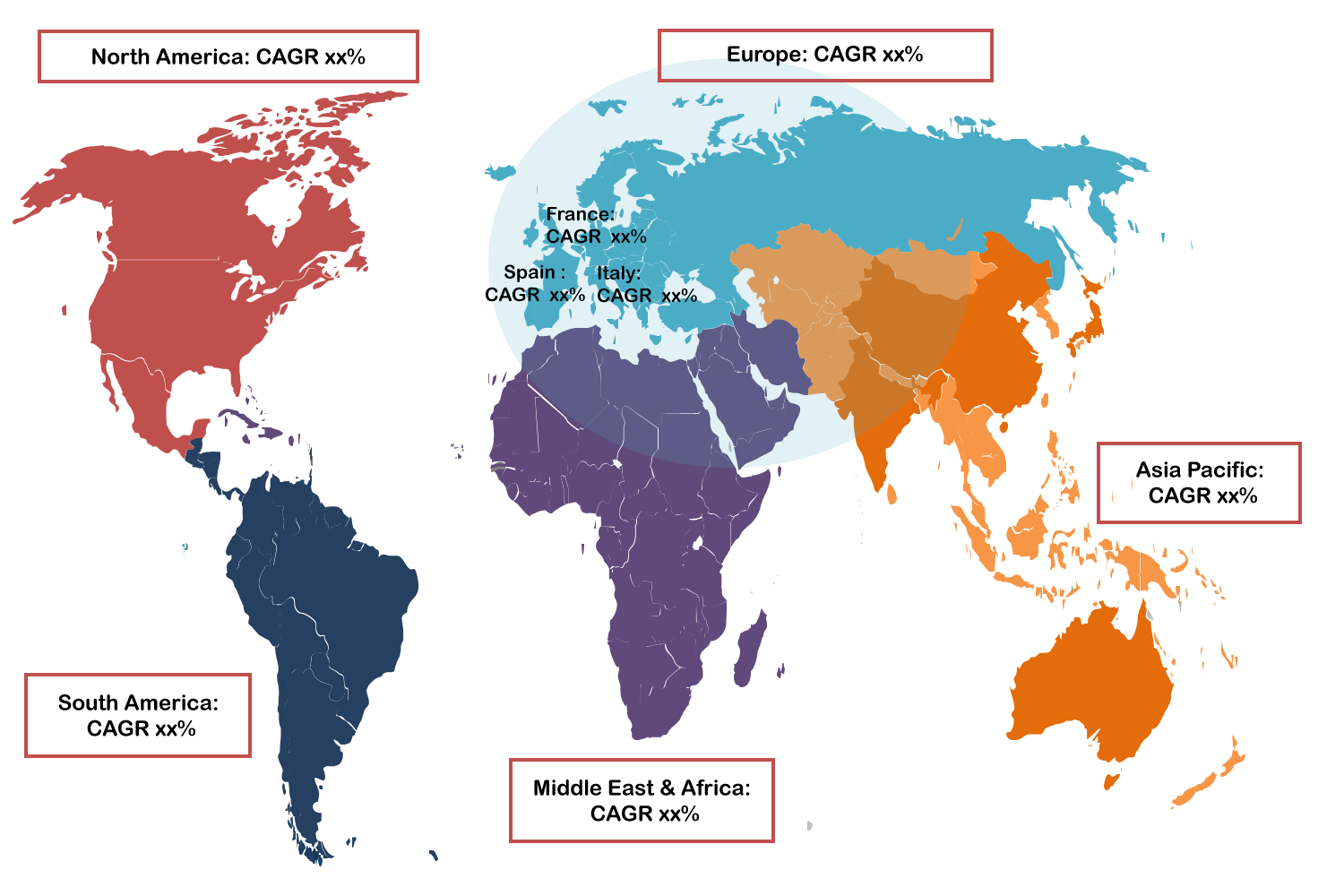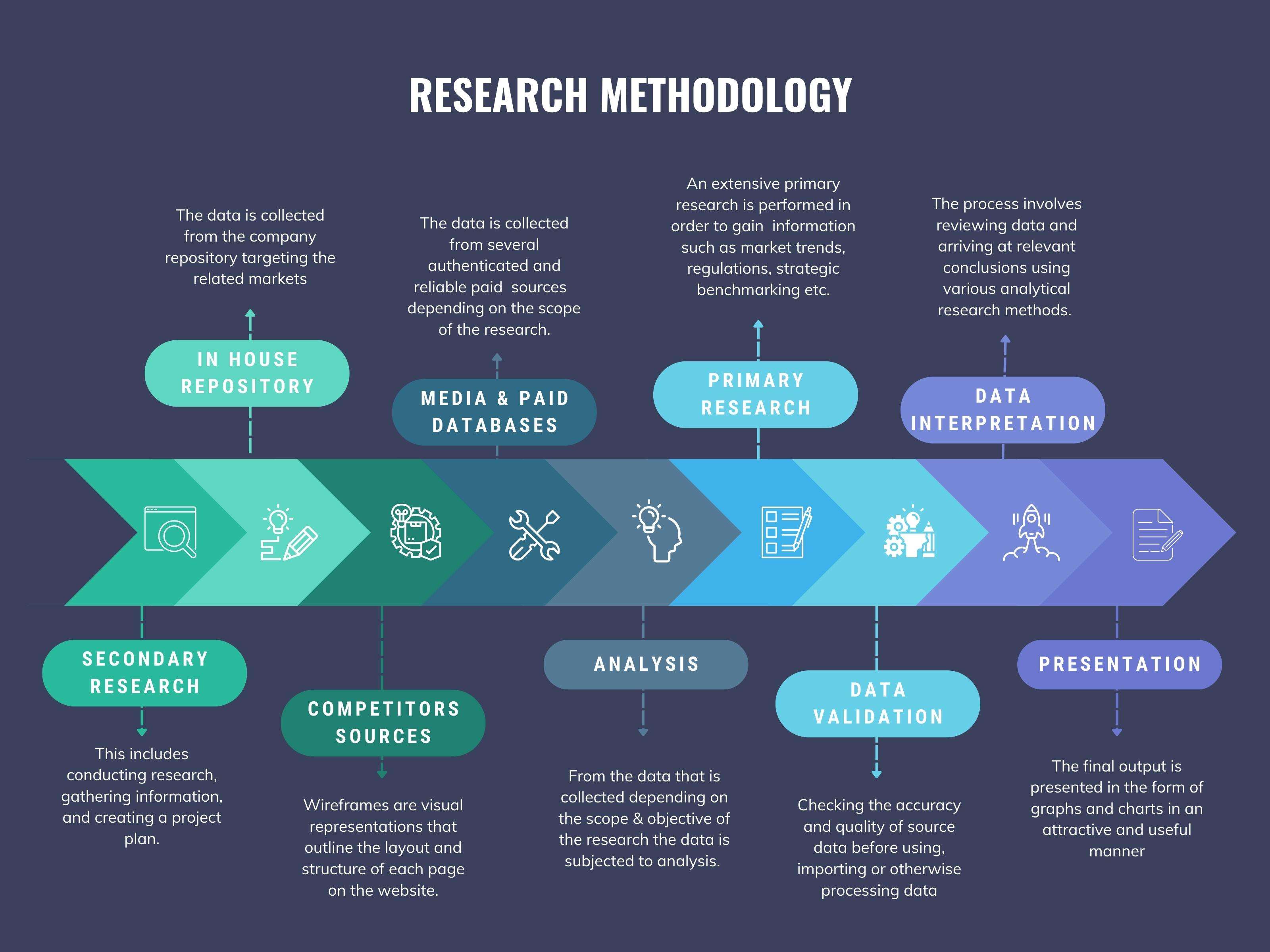
Electric Vehicle Wireless Charging Market
Electric Vehicle Wireless Charging Market Forecasts to 2028 - Global Analysis By Vehicle Type (Commercial Vehicles and Passenger Cars), By Power Supply (3-<11 KW, 11-50 KW and >50 KW), By Component, By Charging System, By Charging Type, By Propulsion Type, By Distribution Channel, By End User and By Geography

|
Years Covered |
2020-2028 |
|
Estimated Year Value (2022) |
US $32.53 MN |
|
Projected Year Value (2028) |
US $249.13 MN |
|
CAGR (2022 - 2028) |
40.4% |
|
Regions Covered |
North America, Europe, Asia Pacific, South America, and Middle East & Africa |
|
Countries Covered |
US, Canada, Mexico, Germany, UK, Italy, France, Spain, Japan, China, India, Australia, New Zealand, South Korea, Rest of Asia Pacific, South America, Argentina, Brazil, Chile, Middle East & Africa, Saudi Arabia, UAE, Qatar, and South Africa |
|
Largest Market |
Asia Pacific |
|
Highest Growing Market |
Europe |
According to Stratistics MRC, the Global Electric Vehicle Wireless Charging Market is accounted for $32.53 million in 2022 and is expected to reach $249.13 million by 2028 growing at a CAGR of 40.4% during the forecast period. Electric vehicle wireless charging has a variety of advantages, including convenience, efficiency, and aesthetics. Electric vehicle wireless charging is still in its development as of now. The market is expected to be driven by rapid technical advancements, an increased emphasis on research and development (R&D) activities, and strict emission regulations.
According to the International Council on Clean Transportation (ICCT) 2021 report, the electrical automobile industry within the U.S. has increased from 1000’s automobiles sold in 2010 to more than 315,000 automobiles sold from 2018 to 2020.

Market Dynamics:
Driver:
Rapid development of fast-charging infrastructure
More public charging stations are required due to the rise in electric vehicle owners. The need for public fast charging is anticipated to increase in the upcoming years as the base of electric vehicles expands and electrifies new use cases. Electric car owners ought not to worry about the grid connection because the batteries in EVs can charge automatically whenever and wherever they are parked. Air pollution has decreased due to the global expansion of wireless electric vehicle charging technologies.
Restraint:
Upgrade to wireless charging technology costs
Since high voltage and high power are required for EV charging, the cost and safety concerns with wireless charging devices are expected to restrain expansion. Also, the wireless charging system demands the installation of an additional charger within the electric car, raising the price of the car overall. In addition, it is predicted that these issues will limit market expansion in the upcoming years. Also, compared to a wired charger, upgrading a wireless electric vehicle charger to the most recent edition is more difficult, which could restrain market growth over the forecast period.
Opportunity:
Surge in electric vehicle sales
Global sales of electric vehicles increased by 41% to around 3 million in 2020 from the year before. The environment created by government policy continues to be a primary driver of the increase in the number of electric vehicles. Other factors boosting EV sales include expanded charging infrastructure, an increase in demand and supply-side factors, price parity with conventional vehicles due to federal subsidies, manufacturer outreach programs, and decreasing battery prices. The market for electric vehicle wireless charging is predicted to expand in the upcoming years as more electric vehicles are placed on the road.
Threat:
Reducing efficiency loss
The market for electric vehicles has seen rapid expansion in wireless charging technology. The electric vehicle can be charged with this technique by simply parking it below the base panel and making no manual connections. Wireless charging technology does have some drawbacks, though. When compared to conventional power transfer, the power loss in wireless charging technology is around 7–12% higher. Also, the distance over which a wireless charger may transmit using electromagnetic induction and/or magnetic resonance is constrained. Manufacturers have a significant hurdle as a result of this range restriction, particularly in the case of LCVs and SUVs with high ground clearance. The proportion of power efficiency to transmitter-to-receiver separation is inversely proportional.
Covid-19 Impact:
Due to a lockdown in some nations that limited the production of EVs, the COVID-19 crisis in 2020 caused a slowdown in the worldwide auto part and car manufacturing industries. According to demand, further infrastructure is needed for EV charging. Due to widespread lockdowns and governmental limitations, major investments in the construction of electric car charging infrastructure have been delayed. This has affected the majority of EV supply equipment manufacturers worldwide.
The battery electric vehicles segment is expected to be the largest during the forecast period
As wireless charging technologies are more widely used in BEVs than PHEVs during the projection period, the battery electric vehicles (BEV) segment is anticipated to have the largest share of the market by propulsion. In BEVs, the battery is the only source of electricity and thus needs to be charged regularly. Moreover, the wireless charging system is installable in offices, malls, public spaces, and garages. In the upcoming years, it is anticipated that growing investments in wireless charging technology for battery electric vehicles by numerous nations, including Germany, Sweden, the US, and Italy, among others, will favorably impact the BEV segment of the wireless charging market for electric vehicles.
The commercial charging station segment is expected to have the highest CAGR during the forecast period
Due to the rising demand for commercial wireless electric vehicle charging systems across China, the high prevalence of commercial wireless electric vehicle charging systems in Europe, and the growing need to develop electric vehicle charging infrastructure at public locations, the commercial charging station segment is anticipated to register the highest CAGR over the forecast period. Furthermore, the presence of substantial commercial garage parking spaces and highly populated urban areas is primarily responsible for this segment's rapid growth.
Region with largest share:
Due to the adoption of high-end technological products by electric vehicle manufacturers and government initiatives to promote charging infrastructures, Asia Pacific is expected to dominate as the region with the largest market revenue share throughout the projection period. Furthermore, it is anticipated that improvements in automotive technology, expanding EV usage, and increased vehicle production will drive up product demand in this region.
Region with highest CAGR:
Over the projection period, Europe is anticipated to have the highest CAGR due to the presence of sustainable infrastructures to support the sale of electric vehicles. The major manufacturing base and the main economy for wireless charging stations are anticipated to be in Europe. Furthermore, whenever people are shopping for a car, electric vehicles are considered a feasible option. Over the last few years, the number of electric car sales in the European region has increased. However, predicted growth in sales will offer opportunities for some technologies, such as wireless infrastructure for charging electric vehicles.

Key players in the market
Some of the key players in Electric Vehicle Wireless Charging market include Continental Ag, Evatran Group (Plugless), HELLA Gmbh & Co. Kgaa, Integrated Device Technology, IPT Group, Momentum Dynamics Corporation, Nidec Mobility Corporation, Powermat Technologies Ltd, Qualcomm Technologies, Robert Bosch Gmbh, Tesla, Texas Instruments Inc, Toshiba Corporation, Toyota Motor Corporation, Witricity Corporation And Zte Corporation.
Key Developments:
In February 2021, IPT Group takes over PRIMOVE E-mobility Wireless Charging Technology Portfolio IPT Group acquired PRIMOVE to the scale-up its product portfolio in wireless power transfer for electric mobility. This acquisition helps to accelerate IPT’s offering of a complete product portfolio to serve several markets.
In January 2021, Alibaba Partners with SAIC to Unveil Electric Car with Wireless Charging Alibaba Group Holding, a China-based e-commerce group, launched an electric car with wireless charging under the joint venture brand IM ‘intelligence in motion’ formed with SAIC Motor Corporation Ltd.
Vehicle Types Covered:
• Commercial Vehicles
• Passenger Cars
Power Supplies Covered:
• 3-<11 KW
• 11-50 KW
• >50 KW
Components Covered:
• Base Charging Pad
• Vehicle Charging Pad
• Power Control Unit
Charging Systems Covered:
• Operational Data
• Inductive Power Tranfer
• Magnetic Power Transfer
• Capacitive Power Tranfer
Charging Types Covered:
• Stationary Wireless Charging System
• Dynamic Wireless Charging System
Propulsion Types Covered:
• Battery Electric Vehicle (BEV)
• Plug-In Hybrid Electric Vehicle (PHEV)
Distribution Channels Covered:
• Aftermarket
• Original Equipment Manufacturers (OEMs)
End Users Covered:
• Home Charging Unit
• Commercial Charging Station
• Resonant Inductive Wireless EV Charging Systems
• Capacitive Wireless EV Charging Systems
• Permanent Magnet Gear Wireless EV Charging Systems
• Inductive Wireless EV Charging Systems
• Residential Wireless EV Charging Systems
• Commercial Wireless EV Charging Systems
Regions Covered:
• North America
o US
o Canada
o Mexico
• Europe
o Germany
o UK
o Italy
o France
o Spain
o Rest of Europe
• Asia Pacific
o Japan
o China
o India
o Australia
o New Zealand
o South Korea
o Rest of Asia Pacific
• South America
o Argentina
o Brazil
o Chile
o Rest of South America
• Middle East & Africa
o Saudi Arabia
o UAE
o Qatar
o South Africa
o Rest of Middle East & Africa
What our report offers:
- Market share assessments for the regional and country-level segments
- Strategic recommendations for the new entrants
- Covers Market data for the years 2020, 2021, 2022, 2025, and 2028
- Market Trends (Drivers, Constraints, Opportunities, Threats, Challenges, Investment Opportunities, and recommendations)
- Strategic recommendations in key business segments based on the market estimations
- Competitive landscaping mapping the key common trends
- Company profiling with detailed strategies, financials, and recent developments
- Supply chain trends mapping the latest technological advancements
Free Customization Offerings:
All the customers of this report will be entitled to receive one of the following free customization options:
• Company Profiling
o Comprehensive profiling of additional market players (up to 3)
o SWOT Analysis of key players (up to 3)
• Regional Segmentation
o Market estimations, Forecasts and CAGR of any prominent country as per the client's interest (Note: Depends on feasibility check)
• Competitive Benchmarking
Benchmarking of key players based on product portfolio, geographical presence, and strategic alliances
Table of Contents
1 Executive Summary
2 Preface
2.1 Abstract
2.2 Stake Holders
2.3 Research Scope
2.4 Research Methodology
2.4.1 Data Mining
2.4.2 Data Analysis
2.4.3 Data Validation
2.4.4 Research Approach
2.5 Research Sources
2.5.1 Primary Research Sources
2.5.2 Secondary Research Sources
2.5.3 Assumptions
3 Market Trend Analysis
3.1 Introduction
3.2 Drivers
3.3 Restraints
3.4 Opportunities
3.5 Threats
3.6 End User Analysis
3.7 Emerging Markets
3.8 Impact of Covid-19
4 Porters Five Force Analysis
4.1 Bargaining power of suppliers
4.2 Bargaining power of buyers
4.3 Threat of substitutes
4.4 Threat of new entrants
4.5 Competitive rivalry
5 Global Electric Vehicle Wireless Charging Market, By Vehicle Type
5.1 Introduction
5.2 Commercial Vehicles
5.2.1 Electric Buses
5.2.2 Electric Trucks
5.2.2.1 Electric Pick-Up Trucks
5.2.3 Electric Vans
5.2.4 Heavy Commercial Vehicles
5.2.5 Light Commercial Vehicles
5.2.6 Mopeds & Scooters
5.3 Passenger Cars
6 Global Electric Vehicle Wireless Charging Market, By Power Supply
6.1 Introduction
6.2 3-<11 KW
6.3 11-50 KW
6.4 >50 KW
7 Global Electric Vehicle Wireless Charging Market, By Component
7.1 Introduction
7.2 Base Charging Pad
7.3 Vehicle Charging Pad
7.4 Power Control Unit
8 Global Electric Vehicle Wireless Charging Market, By Charging System
8.1 Introduction
8.2 Operational Data
8.3 Inductive Power Tranfer
8.4 Magnetic Power Transfer
8.5 Capacitive Power Tranfer
9 Global Electric Vehicle Wireless Charging Market, By Charging Type
9.1 Introduction
9.2 Stationary Wireless Charging System
9.3 Dynamic Wireless Charging System
10 Global Electric Vehicle Wireless Charging Market, By Propulsion Type
10.1 Introduction
10.2 Battery Electric Vehicle (BEV)
10.3 Plug-In Hybrid Electric Vehicle (PHEV)
11 Global Electric Vehicle Wireless Charging Market, By Distribution Channel
11.1 Introduction
11.2 Aftermarket
11.3 Original Equipment Manufacturers (OEMs)
12 Global Electric Vehicle Wireless Charging Market, By End User
12.1 Introduction
12.2 Home Charging Unit
12.3 Commercial Charging Station
12.4 Resonant Inductive Wireless EV Charging Systems
12.5 Capacitive Wireless EV Charging Systems
12.6 Permanent Magnet Gear Wireless EV Charging Systems
12.7 Inductive Wireless EV Charging Systems
12.8 Residential Wireless EV Charging Systems
12.9 Commercial Wireless EV Charging Systems
13 Global Electric Vehicle Wireless Charging Market, By Geography
13.1 Introduction
13.2 North America
13.2.1 US
13.2.2 Canada
13.2.3 Mexico
13.3 Europe
13.3.1 Germany
13.3.2 UK
13.3.3 Italy
13.3.4 France
13.3.5 Spain
13.3.6 Rest of Europe
13.4 Asia Pacific
13.4.1 Japan
13.4.2 China
13.4.3 India
13.4.4 Australia
13.4.5 New Zealand
13.4.6 South Korea
13.4.7 Rest of Asia Pacific
13.5 South America
13.5.1 Argentina
13.5.2 Brazil
13.5.3 Chile
13.5.4 Rest of South America
13.6 Middle East & Africa
13.6.1 Saudi Arabia
13.6.2 UAE
13.6.3 Qatar
13.6.4 South Africa
13.6.5 Rest of Middle East & Africa
14 Key Developments
14.1 Agreements, Partnerships, Collaborations and Joint Ventures
14.2 Acquisitions & Mergers
14.3 New Product Launch
14.4 Expansions
14.5 Other Key Strategies
15 Company Profiling
15.1 Continental Ag
15.2 Evatran Group (Plugless)
15.3 Hella Gmbh & Co. Kgaa
15.4 Integrated Device Technology
15.5 Ipt Group
15.6 Momentum Dynamics Corporation
15.7 Nidec Mobility Corporation
15.8 Powermat Technologies Ltd
15.9 Qualcomm Technologies
15.10 Robert Bosch Gmbh
15.11 Tesla
15.12 Texas Instruments Inc
15.13 Toshiba Corporation
15.14 Toyota Motor Corporation
15.15 Witricity Corporation
15.16 ZTE Corporation
List of Tables
1 Global Electric Vehicle Wireless Charging Market Outlook, By Region (2020-2028) ($MN)
2 Global Electric Vehicle Wireless Charging Market Outlook, By Vehicle Type (2020-2028) ($MN)
3 Global Electric Vehicle Wireless Charging Market Outlook, By Commercial Vehicles (2020-2028) ($MN)
4 Global Electric Vehicle Wireless Charging Market Outlook, By Electric Buses (2020-2028) ($MN)
5 Global Electric Vehicle Wireless Charging Market Outlook, By Electric Trucks (2020-2028) ($MN)
6 Global Electric Vehicle Wireless Charging Market Outlook, By Electric Vans (2020-2028) ($MN)
7 Global Electric Vehicle Wireless Charging Market Outlook, By Heavy Commercial Vehicles (2020-2028) ($MN)
8 Global Electric Vehicle Wireless Charging Market Outlook, By Light Commercial Vehicles (2020-2028) ($MN)
9 Global Electric Vehicle Wireless Charging Market Outlook, By Mopeds & Scooters (2020-2028) ($MN)
10 Global Electric Vehicle Wireless Charging Market Outlook, By Passenger Cars (2020-2028) ($MN)
11 Global Electric Vehicle Wireless Charging Market Outlook, By Power Supply (2020-2028) ($MN)
12 Global Electric Vehicle Wireless Charging Market Outlook, By 3-<11 KW (2020-2028) ($MN)
13 Global Electric Vehicle Wireless Charging Market Outlook, By 11-50 KW (2020-2028) ($MN)
14 Global Electric Vehicle Wireless Charging Market Outlook, By >50 KW (2020-2028) ($MN)
15 Global Electric Vehicle Wireless Charging Market Outlook, By Component (2020-2028) ($MN)
16 Global Electric Vehicle Wireless Charging Market Outlook, By Base Charging Pad (2020-2028) ($MN)
17 Global Electric Vehicle Wireless Charging Market Outlook, By Vehicle Charging Pad (2020-2028) ($MN)
18 Global Electric Vehicle Wireless Charging Market Outlook, By Power Control Unit (2020-2028) ($MN)
19 Global Electric Vehicle Wireless Charging Market Outlook, By Charging System (2020-2028) ($MN)
20 Global Electric Vehicle Wireless Charging Market Outlook, By Operational Data (2020-2028) ($MN)
21 Global Electric Vehicle Wireless Charging Market Outlook, By Inductive Power Tranfer (2020-2028) ($MN)
22 Global Electric Vehicle Wireless Charging Market Outlook, By Magnetic Power Transfer (2020-2028) ($MN)
23 Global Electric Vehicle Wireless Charging Market Outlook, By Capacitive Power Tranfer (2020-2028) ($MN)
24 Global Electric Vehicle Wireless Charging Market Outlook, By Charging Type (2020-2028) ($MN)
25 Global Electric Vehicle Wireless Charging Market Outlook, By Stationary Wireless Charging System (2020-2028) ($MN)
26 Global Electric Vehicle Wireless Charging Market Outlook, By Dynamic Wireless Charging System (2020-2028) ($MN)
27 Global Electric Vehicle Wireless Charging Market Outlook, By Propulsion Type (2020-2028) ($MN)
28 Global Electric Vehicle Wireless Charging Market Outlook, By Battery Electric Vehicle (BEV) (2020-2028) ($MN)
29 Global Electric Vehicle Wireless Charging Market Outlook, By Plug-In Hybrid Electric Vehicle (PHEV) (2020-2028) ($MN)
30 Global Electric Vehicle Wireless Charging Market Outlook, By Distribution Channel (2020-2028) ($MN)
31 Global Electric Vehicle Wireless Charging Market Outlook, By Aftermarket (2020-2028) ($MN)
32 Global Electric Vehicle Wireless Charging Market Outlook, By Original Equipment Manufacturers (OEMs) (2020-2028) ($MN)
33 Global Electric Vehicle Wireless Charging Market Outlook, By End User (2020-2028) ($MN)
34 Global Electric Vehicle Wireless Charging Market Outlook, By Home Charging Unit (2020-2028) ($MN)
35 Global Electric Vehicle Wireless Charging Market Outlook, By Commercial Charging Station (2020-2028) ($MN)
36 Global Electric Vehicle Wireless Charging Market Outlook, By Resonant Inductive Wireless EV Charging Systems (2020-2028) ($MN)
37 Global Electric Vehicle Wireless Charging Market Outlook, By Capacitive Wireless EV Charging Systems (2020-2028) ($MN)
38 Global Electric Vehicle Wireless Charging Market Outlook, By Permanent Magnet Gear Wireless EV Charging Systems (2020-2028) ($MN)
39 Global Electric Vehicle Wireless Charging Market Outlook, By Inductive Wireless EV Charging Systems (2020-2028) ($MN)
40 Global Electric Vehicle Wireless Charging Market Outlook, By Residential Wireless EV Charging Systems (2020-2028) ($MN)
41 Global Electric Vehicle Wireless Charging Market Outlook, By Commercial Wireless EV Charging Systems (2020-2028) ($MN)
Note: Tables for North America, Europe, APAC, South America, and Middle East & Africa Regions are also represented in the same manner as above.
List of Figures
RESEARCH METHODOLOGY

We at ‘Stratistics’ opt for an extensive research approach which involves data mining, data validation, and data analysis. The various research sources include in-house repository, secondary research, competitor’s sources, social media research, client internal data, and primary research.
Our team of analysts prefers the most reliable and authenticated data sources in order to perform the comprehensive literature search. With access to most of the authenticated data bases our team highly considers the best mix of information through various sources to obtain extensive and accurate analysis.
Each report takes an average time of a month and a team of 4 industry analysts. The time may vary depending on the scope and data availability of the desired market report. The various parameters used in the market assessment are standardized in order to enhance the data accuracy.
Data Mining
The data is collected from several authenticated, reliable, paid and unpaid sources and is filtered depending on the scope & objective of the research. Our reports repository acts as an added advantage in this procedure. Data gathering from the raw material suppliers, distributors and the manufacturers is performed on a regular basis, this helps in the comprehensive understanding of the products value chain. Apart from the above mentioned sources the data is also collected from the industry consultants to ensure the objective of the study is in the right direction.
Market trends such as technological advancements, regulatory affairs, market dynamics (Drivers, Restraints, Opportunities and Challenges) are obtained from scientific journals, market related national & international associations and organizations.
Data Analysis
From the data that is collected depending on the scope & objective of the research the data is subjected for the analysis. The critical steps that we follow for the data analysis include:
- Product Lifecycle Analysis
- Competitor analysis
- Risk analysis
- Porters Analysis
- PESTEL Analysis
- SWOT Analysis
The data engineering is performed by the core industry experts considering both the Marketing Mix Modeling and the Demand Forecasting. The marketing mix modeling makes use of multiple-regression techniques to predict the optimal mix of marketing variables. Regression factor is based on a number of variables and how they relate to an outcome such as sales or profits.
Data Validation
The data validation is performed by the exhaustive primary research from the expert interviews. This includes telephonic interviews, focus groups, face to face interviews, and questionnaires to validate our research from all aspects. The industry experts we approach come from the leading firms, involved in the supply chain ranging from the suppliers, distributors to the manufacturers and consumers so as to ensure an unbiased analysis.
We are in touch with more than 15,000 industry experts with the right mix of consultants, CEO's, presidents, vice presidents, managers, experts from both supply side and demand side, executives and so on.
The data validation involves the primary research from the industry experts belonging to:
- Leading Companies
- Suppliers & Distributors
- Manufacturers
- Consumers
- Industry/Strategic Consultants
Apart from the data validation the primary research also helps in performing the fill gap research, i.e. providing solutions for the unmet needs of the research which helps in enhancing the reports quality.
For more details about research methodology, kindly write to us at info@strategymrc.com
Frequently Asked Questions
In case of any queries regarding this report, you can contact the customer service by filing the “Inquiry Before Buy” form available on the right hand side. You may also contact us through email: info@strategymrc.com or phone: +1-301-202-5929
Yes, the samples are available for all the published reports. You can request them by filling the “Request Sample” option available in this page.
Yes, you can request a sample with your specific requirements. All the customized samples will be provided as per the requirement with the real data masked.
All our reports are available in Digital PDF format. In case if you require them in any other formats, such as PPT, Excel etc you can submit a request through “Inquiry Before Buy” form available on the right hand side. You may also contact us through email: info@strategymrc.com or phone: +1-301-202-5929
We offer a free 15% customization with every purchase. This requirement can be fulfilled for both pre and post sale. You may send your customization requirements through email at info@strategymrc.com or call us on +1-301-202-5929.
We have 3 different licensing options available in electronic format.
- Single User Licence: Allows one person, typically the buyer, to have access to the ordered product. The ordered product cannot be distributed to anyone else.
- 2-5 User Licence: Allows the ordered product to be shared among a maximum of 5 people within your organisation.
- Corporate License: Allows the product to be shared among all employees of your organisation regardless of their geographical location.
All our reports are typically be emailed to you as an attachment.
To order any available report you need to register on our website. The payment can be made either through CCAvenue or PayPal payments gateways which accept all international cards.
We extend our support to 6 months post sale. A post sale customization is also provided to cover your unmet needs in the report.
Request Customization
We provide a free 15% customization on every purchase. This requirement can be fulfilled for both pre and post sale. You may send your customization requirements through email at info@strategymrc.com or call us on +1-301-202-5929.
Note: This customization is absolutely free until it falls under the 15% bracket. If your requirement exceeds this a feasibility check will be performed. Post that, a quote will be provided along with the timelines.
WHY CHOOSE US ?

Assured Quality
Best in class reports with high standard of research integrity

24X7 Research Support
Continuous support to ensure the best customer experience.

Free Customization
Adding more values to your product of interest.

Safe & Secure Access
Providing a secured environment for all online transactions.

Trusted by 600+ Brands
Serving the most reputed brands across the world.
